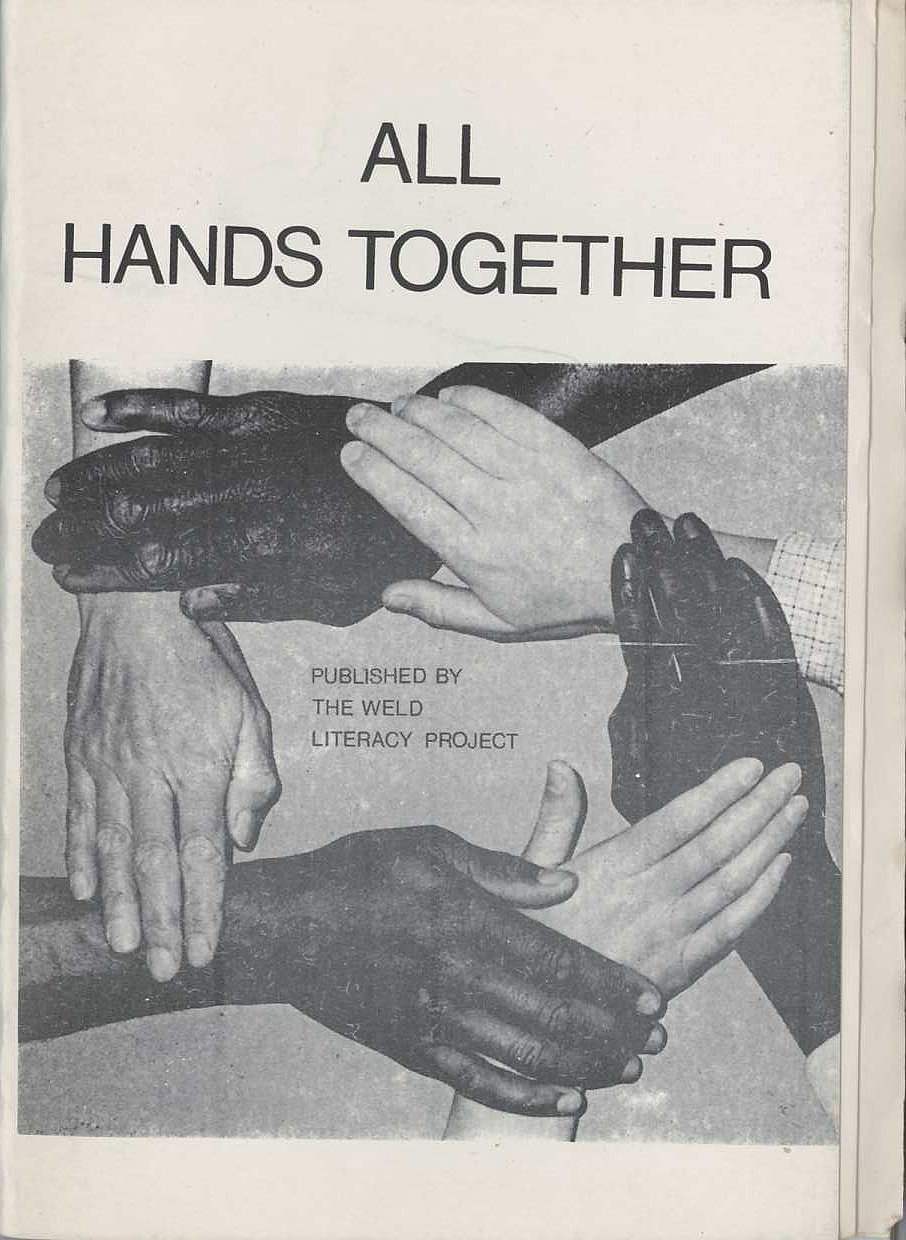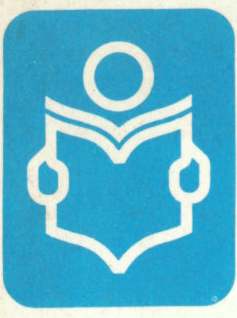Project
Right to Read
How I became involved in adult literacy teaching: 1975 – 1979

All Hands Together: A booklet of student writing produced by Jenny Maxwell at Weld which I helped to edit.

Right to Read logo
It was a difficult time for me: working full time and studying part time – and bringing up a young family of two sons – but I became more and more determined to be actively involved in community action in order to try to do something about the inequalities faced by black people in British society. About half way into my course – in 1975 – I gave up my office job to become a part-time literacy development worker at the Birmingham Settlement.
This charity had been active in Aston since the early 20th century and had pioneered many innovative social change programmes, such as Money Advice. It had also been at the forefront of drawing attention to the issue of adult literacy at a national level. It had influenced the government’s decision to set up a national Right to Read Scheme in 1975 to provide help with reading and writing for an estimated two million adults in the UK who were illiterate. The Settlement’s literacy programme recruited volunteer tutors to teach students on a one-to-one basis and in small groups.
My predecessor at the Settlement, Alan Wells, had been a key figure in developing the adult literacy scheme in Birmingham, and he then went on to become the director of the Adult Literacy Resource Agency (Alra) which later became the Adult Literacy & Basic Skills Unit (Albsu) based in London.
I trained to be a volunteer tutor, recruited and trained other tutors, then recruited students, and co-ordinated and organised teaching and learning. I established regular daytime adult literacy classes at the Settlement that were well attended by students who lived locally.
Through this work I became increasingly involved with the issues raised by illiteracy; the problems faced by students with reading and writing difficulties; the reasons behind illiteracy; and the need to make good remedial provision available.
I also worked closely with other projects developing adult literacy classes. These included:
Weld (Westminster Endeavour, Liaison and Development): a community arts project based in Wilson Road Handsworth, that provided a range of activities, including a nursery, photography, arts and adult literacy. I taught a class there one evening a week
I helped Jenny Maxwell, the WELD education co-ordinator, to produce a book of student writing called All Hands Together, published in 1980. This was my first experience of publishing and it showed me how important student-centred learning was in terms of motivation and stimulation to learn.
Aston and Handsworth Institute: run by the local education authority, was instrumental in running the training courses for volunteer tutors, and for information and advice on the Right to Read scheme. Here I worked with a number of people, including Arthur McHugh, Sylvia Dodds, and John Underwood.
AFFOR (All Faiths for One Race): a voluntary project based in Handsworth that offered a range of activities including translation, immigration and housing advice, the Waites library, and adult literacy. Clare Short was the director at AFFOR when it published Talking Blues, a series of interviews with all sections of the area’s black community about relations with the police – which had reached a flashpoint in the late 1970s.
Harambee: a black-run self-help project run by a number of people including, Dennis Nelson and others based in Handsworth providing a range of activities including housing advice, a book shop, and adult literacy development.
Citadel Project: a youth project set up by St Basils (the charity for the homeless) in Birmingham city centre that acted as a drop-in centre, providing advice and information on employment, housing, education, and adult literacy. I set up and taught classes there with the help of Citadel youth workers, including Louis Wright.